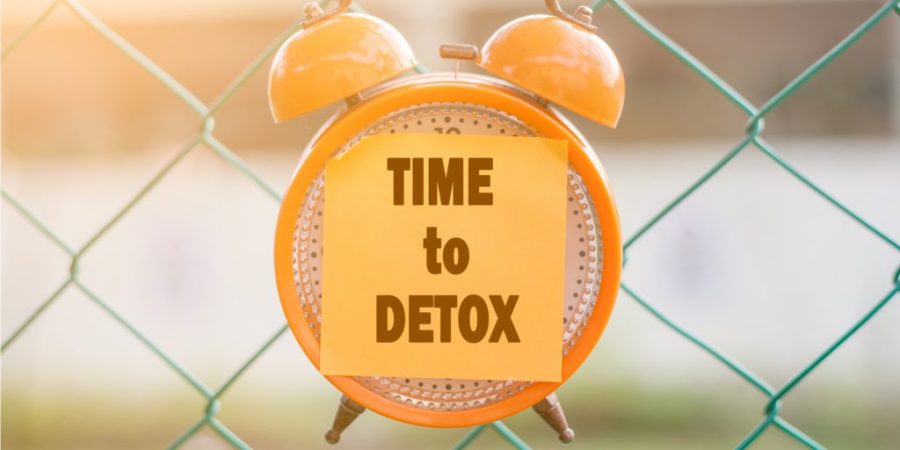
If you’re holding off on a detox for drugs in Florida until after the new year, you are not alone. Many people use December to indulge in unhealthy habits with the goal of starting over in the new year. While this logic is understandable for behaviors that are not dangerous to a person’s health, addiction is different. Every time a drug is used there is a significant risk involved. If you are struggling with substance abuse and are ready to stop, there are numerous reasons why now is the time to set forth on this goal.
Without a doubt, the holiday season can be stressful. While this may not seem like the ideal time to start your recovery journey, there are many reasons to challenge this mindset. Below are considerations for what to expect from drug detox and the benefits of being sober for the new year.
A New Year, New You: Drug Detox vs. Addiction Treatment

New year goal setting is generally a good thing, especially when getting sober is the objective. But before looking at the benefits of starting recovery before the new year, let’s look at the difference between drug detox and more comprehensive addiction treatment.
Technically speaking, a detox for drugs is the process of eliminating drugs from the body. Detox begins as soon as drug use is stopped, regardless of whether someone enrolls in a formal detox center or quits at home.
This makes drug detoxification the very first step in the recovery journey, or the process of getting sober. Naturally, each detox experience will depend on which substance(s) have been used, how long they were used for, and numerous personal variables. As the body clears the drug from the system, withdrawal symptoms may occur. These can range from uncomfortable to life-threatening.
On the other hand, drug rehabilitation includes drug detox (if necessary) but also incorporates therapeutic practices that address the deep-seated and long-term struggles that often accompany addiction. Examples of drug rehabilitation methods include:
- Individual Counseling
- Family Counseling
- Mental Health Assessments and Treatment
- Medication Management
- Strategies for Healthy Coping and Relapse Prevention
- Ongoing Support Throughout Recovery (Aftercare)
Usually, addiction treatment beyond detox is recommended. In this way, obstacles such as cravings and potential relapses can be managed. However, it all starts with eliminating the drug toxins from your system.
How long does detox take?

Recovery from addiction is generally considered a long-term, or even a life-long process. In comparison, drug detox is much quicker. On average it takes anywhere from a few days to a few weeks to complete a detox for drugs. Unfortunately, withdrawal symptoms and cravings may last for much longer depending on the substances abused, but the drug will technically be out of the system.
Home Detox vs a Detox Program
When you’re ready to quit using substances and are contemplating how to detox from drugs, staying at home may seem like the best option. While it’s true that you would be in your own comfortable environment, an at-home detox is not the safest way to go. Many drugs come with significant withdrawal symptoms during the detox process. These withdrawal symptoms make resisting drug use intensely difficult and could place your health at significant risk.
Alternatively, drug detox treatment at a detox center or Florida drug rehab facility is prepared to address any obstacles that arise from both a comfort and safety perspective. For example, a drug and alcohol detox team will:
- Monitor patients’ health around the clock
- Provide emotional and physical support
- Administer medication (if needed) to alleviate withdrawal symptoms
- Help control the cravings that often result in failed home detox attempts
In addition, detox facilities will facilitate future plans. This means they will help prepare you for life without drug use. Discharge planning could look like recommendations for more intensive drug rehab, outpatient support, relapse prevention plans, or other forms of aftercare. Substance abuse is rarely finished with detox, and future preparations are essential for success.
When Is It Time for a Drug and Alcohol Detox?
Addiction looks different for everyone, making it challenging to know when it’s time to ask for help. Chasing a drug high leaves often leaves people mentally and physically addicted to drugs. However, this is not the only way substance use ends in addiction. Drugs prescribed for chronic pain, anxiety, and other legitimate conditions may also result in a psychological or physical addiction, even if the substances were recommended by a doctor. In any case, when substance use begins interfering with your life, it’s time to consider a detox for drugs and addiction rehab.
Start a Detox for Drugs Now

Choosing to enroll in drug detox is a big decision. Understandably, with the stress of the holiday season, many choose to delay this goal until January. However, if you start detox now, your body will be clear of drugs by the new year. You will also have professional support throughout the holiday season, and be clear-headed for the start of 2022.
The Blackberry Center in Central Florida Is Ready for Your Detox Today
At the Blackberry Center near Orlando, FL, we understand the difficulty that comes with taking the first step to addiction treatment. Rest assured that we will be with you every step of the way during your drug detox and will help you break free of the seemingly endless cycle of quitting and relapsing.
Taking a break for drug detoxification at rehab centers in central Florida is the best gift you can give yourself in 2021 and will set you up for a successful 2022. To learn more about the Blackberry Center’s drug rehabilitation programs, call our admissions specialists at 888-512-9802. Alternatively, you can fill out our confidential online form.
Treatment Frequently Asked Questions
Because addiction recovery often involves the treatment of co-occurring disorders such as depression or Post-Traumatic Stress Disorder, certain medications may be prescribed to treat these conditions during rehab.
However, you will never be forced to take any medications that you do not want to take. When you enter rehab, you do not give up your rights as a person or a patient, in fact, one of the primary objectives of effective rehab programs is to allow you to take greater control over your life.
The post Start a Detox for Drugs Now to Get a Head Start on 2022 appeared first on The Blackberry Center of Central Florida.
Source
Original Author: The Blackberry Center

